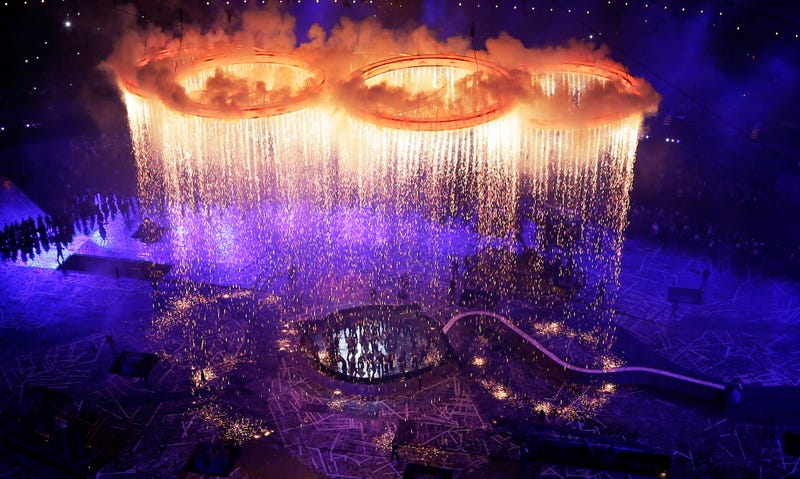
The Rio Olympics formally begin August 5th with the opening ceremony from the Maracanã stadium. Proceedings start at 7 p.m. Eastern Time, only you won’t be able to watch them on NBC until at least an hour later. At a press conference yesterday, NBC execs announced plans to broadcast the ceremony at 8 p.m. Eastern Time and 7 p.m. Central Time, each on one hour delays, and at 7 p.m. Mountain Time and 8 p.m. Pacific Time, on two and four-hour delays respectively.
NBC Sports Group chairman Mark Lazarus said that delays were necessary in order to “give the context of the show,” and he also said that NBC wanted to go on air at a time when people weren’t busy:
By doing a short tape-delay of one hour, it allows us to put it in a time period when more people are home to watch, because it is a Friday night and they get out of their commute or home from wherever they are. And it allows us to curate it with the narrative and storytelling of our announcers to explain what’s going on. And it allows us to put in commercials without cutting out large chunks of the show.
It’s worth pointing out here that NBC hasn’t aired the opening ceremony of a Summer Olympics live since 1996. Of course, 20 years ago, you wouldn’t have been able to see highlights all across the internet before they aired on TV. NBC has an incentive to air the ceremony live, but by delaying, they are sacrificing the chance to be first so they can tailor the coverage, cut out any shenanigans, and pick the best places to cut away to commercial. And, of course, cut anything controversial. As Gary Zenkel, NBCSG’s president, pointed out, it’s a show, not a competition.
Interestingly, NBC applies this logic to the entire Olympic, and has a rather antiquated view of why their majority female audience enjoys the Olympics. Here’s John Miller, a senior vice president at NBC Sports:
The people who watch the Olympics are not particularly sports fans. More women watch the Games than men, and for the women, they’re less interested in the result and more interested in the journey. It’s sort of like the ultimate reality show and mini-series wrapped into one. And to tell the truth, it has been the complaint of a few sports writers. It has not been the complaint of the vast viewing public.
It’s true that most of the viewing public doesn’t closely follow, say, swimming or gymnastics or dressage between Olympics, and focusing the broadcasts on narratives and emotions rather than insidery sports coverage is a more broadly appealing tactic. But to frame this sort of broadcasting as a solution to a woman problem rather than a way to put forth a compelling product about something which the entire viewing public has no context is, at best, a misreading. It posits that a casual audience of American men would prefer an Olympics with nothing but sports instead of the stories and profiles that have come to define NBC’s coverage over the years. And it threatens to underestimate the ever-growing proportion of the potential audience who will consume their Olympics online, with no time delay.
NBC obviously has the most information here, and they’re making decisions driven by decades of market research. Perhaps if they get scooped by the internet on something massive, they’ll decide to shift towards live coverage going forward, or when they realize that women like sports too, they’ll balance their presentation for 2018 and beyond. But it sounds like the NBC Olympics experience is going to be very similar to their handling of the London and Sochi games.



